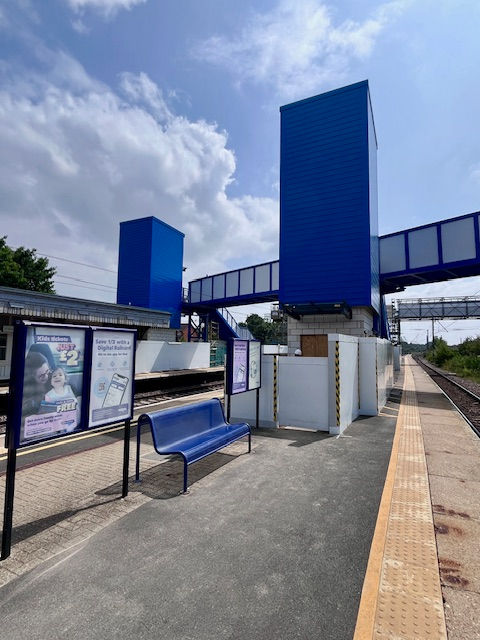Starmer, Rail Accessibility, and Tanni GT
- Julian Vaughan

- Sep 1, 2024
- 3 min read
It was great to hear Keir Starmer talk about rail accessibility being a ‘basic requirement’ following the dreadful experience Tanni Grey-Thompson suffered on an LNER train earlier this week. He was also correct in pointing out that many other people, without Tanni’s profile and reach, would have had similar experiences across the UK rail network.
An accessible rail network intersects with Labour’s core values of equality, a dynamic economy, and a just society. Disabled people do not want help, they just want to be able to travel independently.
However, the reality (despite how those in charge of our railways may want to spin it) is that much of the UK rail network remains a ‘no-go’ area for disabled people. Further, there is a deep-seated culture within the rail industry that still sees accessibility as a ‘nice to have’ rather than a fundamental right. You only have to look at the rail industry’s woeful record of providing accessibility information to see evidence of this slapdash culture.
When there are cuts to transport budgets, it is always accessibility that gets cut first. Rail bosses trot out the “accessibility is a priority” line like a mantra, so much so that I think they genuinely believe it to be the case. The truth is that many people are disabled by the railway – and those who do manage to get on a train face experiences like Tanni’s.
So who will Starmer turn to to fix this hot mess?
The Rail Delivery Group, who played a significant part in the recent drive to close virtually every ticket office? Network Rail, who (in their words, not mine) have failed disabled people? The Office of Rail and Road, who failed to set any targets for accessibility in Control Period 7?
In terms of accessibility, they are currently part of the problem, not part of the solution.
Rather than listen to the corporate spin, the government needs to talk to those directly impacted. There are many disability activists with a profound knowledge of the issues, but at present, they are being politely brushed off.
Let’s talk money. When it comes to accessibility there’s a lot of talk about ‘value for the taxpayer’. Leaving aside the fact that disabled people are taxpayers too and that there is absolutely zero value to disabled people from an inaccessible rail network, an accessible rail network benefits us all – from parents with young children and those with restricted mobility to less road congestion and lower CO2 emissions.
Yes, an accessible rail network would cost a significant amount, and could well be higher than the ‘high scenario’ set out in the graphic below, but apart from morally being the right thing to do, it makes economic sense too, with a return on the initial investment. The benefit-to-cost ratio will increase further as the UK population ages.

Graphic taken from page 22 of the Leonard Cheshire Get on Board 2020 report
We can’t keep rolling out the ‘Victorian Infrastructure’ excuse one hundred and fifty-plus years on.
So, how do we fix it?
Commit to a timebound roadmap for accessible stations. We have net zero carbon targets set in law, we should have the same for an accessible rail network too.
Involve disabled people at EVERY stage of the process, not as a ‘tick box’ exercise.
Mandate all future rolling stock to include level boarding.
Change the culture within the rail industry to genuinely put accessibility as a top priority.
I agree with Keir Starmer that accessibility is a basic requirement, disabled people have waited long enough, but it is time for actions rather than words.
Julian Vaughan
1st September 2024
Sources and further reading:
Leonard Cheshire: Get on Board 2020 – making the economic case for ‘levelling up’ inclusive transport: https://www.leonardcheshire.org/sites/default/files/2020-12/Get-on-Board-2020-policy-report.pdf
Steer Davies Gleave: Access for All benefit research – Impacts of Station Accessibility Improvements https://uk.steergroup.com/sites/default/files/2021-03/Access4AllBenefitResearch2015.pdf
Can we afford not to have an accessible railway? http://julianvaughan.blog/2024/07/16/can-we-afford-not-to-have-an-accessible-railway/
A decade of step-free delay http://julianvaughan.blog/2024/08/09/a-decade-of-step-free-delay/
Actions not words needed on rail accessibility http://julianvaughan.blog/2024/04/30/actions-not-words-needed-on-rail-accessibility/


Comments